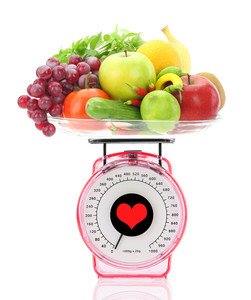If your body has an allergy or a sensitivity to a food, there is no dispute.
You would do best to not eat that food. Seems strait forward, right?
However, figuring out which foods you’re sensitive to can be tricky. To make this easier, we offer a questionnaire – attached to this article – as a tool to help.
The PDF questionnaire has two uses:
- First, you can answer the questions and see your score to get a measure of your current state of well-being and health. Fill it out before and after any change in your diet or lifestyle to see if the change makes a difference. So, if you are wondering if your body has a reaction to wheat, or cow dairy, or any other food, try eliminating that food completely for four to six weeks, and see if your score changes for the better.
- Second, when you are trying to determine if a food affects you, you need to look beyond how your gut and digestive system responds. All of the questions on the attached questionnaire relate to things that can be affected in your body by a food sensitivity. You will notice that issues with your skin, joints, emotions, mental energy, eyes, ears, throat, heart, lungs and stomach can all be affected by eating a food that you are sensitive to.
GET QUESTIONNAIRE HERE: HealthAssessmentQuestionnaire
As an example, I offer the following conversation that occurs regularly in our office:
Doc: “How did you do when you were not eating wheat?”
Client: “Well, I didn’t really notice a difference. I still had gas, and my stomach was still a bit upset.”
Doc: “How were your knees and the pain in your wrists?”
Client: “Oh, my knees and wrists actually didn’t hurt at all. We went on a long hike last weekend and I did fine.”
Doc: “Could you have done that hike a month ago?”
Client: “No way, Doc!” (The Doc is added for a little dramatic flair)
Doc: “You also had a rash on your neck before we started this not-eating wheat experiment, and I don’t see it today.
Client: “Yea, it’s been gone for a few weeks.
Doc: “Look, I’m going to suggest that your joints are feeling better, and your rash went away because you gave up wheat. I’d suggest you continue this experiment a bit longer, and stay off wheat. It may take a few more weeks before your gut feels better.”
Client: “I was afraid you were going to say that, but ok. I can do without wheat for now.”
You get it.
It’s a challenge but the end result can be worth it. After all the crullers aren’t going anywhere!
Look over the questions on the questionnaire. Pay attention to all of the symptoms asked about before you decide that a food doesn’t bother you. And in the bigger picture, score yourself before and after any change in your diet or lifestyle to see if the change makes a difference.
If you’re trying to figure out if a food affects you, pay attention to all of these symptoms. They might be due to a food sensitivity. Remember, your reaction to a food can come hours, even days after you eat the food. Sometimes the reaction is slow moving, and it might take longer. Also, the reaction you experience may have nothing to do with your stomach or digestive system.
Please Note: ALL of the symptoms asked about in this particular questionnaire can be caused by food sensitivities.
Print out the attached questionnaire with this article. HealthAssessmentQuestionnaire. Fill it out and see how your health scores. (The score on this questionnaire has been shown to have some correlation to your overall state of health.)
In the following weeks we plan to go into depth with this questionnaire through our podcast series – so keep looking for those. In the meantime if you feel a burning question arise, let us know and we can add it into the mix and answer it in the podcast.
Until then, make sure to leave a comment, subscribe to our You Tube page and stay well.
To Your Health.

